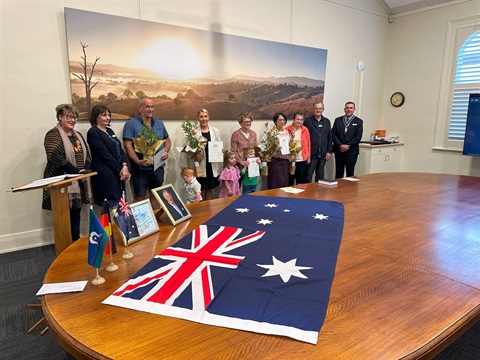15 December 2023
Twelve QIMR Berghofer researchers have been awarded highly contested national funding grants, which will help drive vital research into serious conditions including skin cancer, malaria, leukaemia, obsessive-compulsive disorder, Alzheimer’s disease, haemochromatosis and transplant disorders.
The National Health and Medical Research Council’s (NHMRC) Investigator and Ideas grants were announced by federal Health Minister Mark Butler on Friday.
Five QIMR Berghofer researchers received a total $9.08 million from the Investigator Grant scheme, which is designed to support emerging and established leaders in health and medical research.
Another seven scientists were awarded a total $7.39 million in Ideas Grants for innovative and creative research.
QIMR Berghofer Director Professor Fabienne Mackay said the funding would help progress vital research aiming to understand and treat very serious medical conditions affecting people in Queensland and right around the world.
“In an extremely competitive funding environment, this outcome is testament to the calibre of research conducted by the incredible scientists at QIMR Berghofer. Congratulations to all the recipients,” Professor Mackay said.
NHMRC Investigator Grants:
- Professor David Whiteman will focus on building evidence needed to develop new approaches to prevent and control skin cancer
- Professor Sarah Medland will use statistical genetic data to try to improve understanding of individual responses to drug treatments for mental health disorders
- Professor Eske Derks will seek to identify more effective treatment for neuropsychiatric disorders
- Dr Jackson Thorp will use genetic analysis in an effort to develop more personalised treatments for depression
- Dr John Woodford will establish volunteer studies to accelerate drug and vaccine development for the plasmodium vivax parasite, the second most common cause of malaria
NHMRC Ideas Grants:
- Associate Professor Antiopi Varelias will use her grant to better understand the gut microbiome, in order to treat and prevent graft-versus-host disease (GVHD) and improve patient outcomes after stem cell transplantation
- Associate Professor Luca Cocchi will assess if a new form of non-invasive ultrasound neuromodulation can reduce symptoms of OCD
- Associate Professor Kate Gartlan will investigate T cell responses after stem cell transplantation, providing key data to inform GVHD prevention and treatment
- Dr Claudia Bruedigam will seek to develop a new type of treatment for patients with acute myeloid leukaemia, targeting the energy-storing organelles within leukaemia cells. Her team has already shown this type of treatment may prevent relapse after chemotherapy
- Professor Gregory Anderson will explore the potential of certain drugs to treat iron-loading diseases like haemochromatosis and beta-thalassaemia
- Dr Hazel Qian Yin Quek will study how a gene in brain immune cells leads to Alzheimer’s disease, and whether it can be targeted by new treatments can target this gene
- Dr Hong You will seek to harness the latest technologies to develop sensitive, user-friendly diagnostics for strongyloidiasis and detect multiple parasitic infections simultaneously








